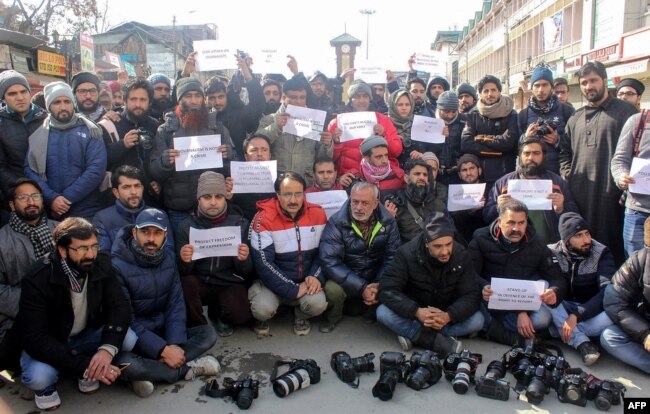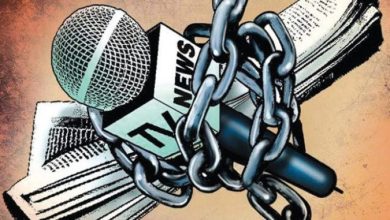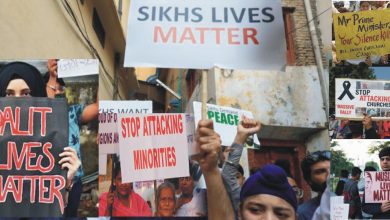Journalists in IIOJK face harsh victimization for reporting truth
#FreeMediaCriminalizedInIIOJK

Islamabad: Journalists are working in the most trying conditions in Indian illegally occupied Jammu and Kashmir, facing severe repercussions for reporting the truth and ground realities of the territory.
A report released by Kashmir Media Service on the occasion of International Day to End Impunity for Crimes against Journalists, today, said the BJP-led Indian government is using black laws and undemocratic tactics to strangulate media in the occupied territory.
The report lamented that prominent Kashmiri journalists like lrfan Meraaj, Majid Hyderi and Sajjad Gul are currently facing detentions under draconian laws. It pointed out that the victimization of journalists in IIOJK has increased manifold since August 05, 2019, when the BJP-led Indian government repealed special constitutional status of the territory.
The report said journalists in IIOJK face killings, murder attempts, arrests and threats at the hands of Indian forces’ personnel on a regular basis and a number of media persons have been killed and scores injured since 1989 in IIOJK. It said India has made independent journalism almost impossible in IIOJK after introducing the so-called media policy in 2020. Journalists are harassed, abducted, threatened and tortured just for doing their job in IIOJK, it deplored.
The report asserts that the Indian government wants to hide the ground realities from the world by criminalizing journalism in occupied Jammu and Kashmir. It calls on the international community must come forward to rescue independent media in the territory and pressure New Delhi to allow media outlets to operate freely.
Since assuming power in 2014, the BJP government has arrested over 20 journalists in IIOJK and India, including Aasif Sultan, Fahad Shah, Irfan Meraaj, Majid Hyderi, Sajjad Gul, Manan Dar, Qazi Shibli, Kamran Yousuf, Baltej Pannu, Santosh Yadav, Somaru Nag, Surinder Singh, Vinod Verma, Anand Teltumbde, Gautam Navlakha, Siddique Kappan, Tanveer Warsi, Ashutosh Negi, Prabir Purkayastha, Rajeev Sharma, Mohammad Jamaludin, Wasim Akram Tyagi, and Zakir Ali Tyagi.








